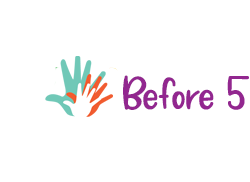I seldom meet a parent who doesn’t know the early years are critical for children’s healthy development. As parents, we are our children’s first and most important teachers and influencers. Dr. Chapman and Ross Campbell, in their book, The 5 Love Languages of Children, reminds us, “Small children love to learn. They are born with an innate hunger for learning that remains strong. A careful observation of infants and toddlers reveals that most of the activity is not merely child’s play; rather, our little ones are working at learning a new skill. Once they learn to talk, their minds are filled with questions every day. Observe your child’s play, and you will see what makes them the happiest and what holds their attention the longest; you will likely find that it is an activity in which she is learning.”
How do we help cultivate optimum learning for children? Children learn best in a learning environment that supports healthy cognitive growth and allows them to follow their interests. A learning environment that is engaging and geared to items children find appealing is only part of igniting children’s interest, curiosity, and learning. It’s just as important to stand back and allow your children the freedom to explore and make their own discoveries without intervening. Becoming too involved in children’s play and overpraising isn’t what’s best for children’s development.
We all want our children to do well and succeed. Words of affirmation and encouragement are fine at times but it is essential for children’s development for them to also just “sit” with their successes. Harnessing our enthusiasm and letting our children’s learning be their reward has a greater impactful on their development then words of praise. When you hear the words, “I did it all by myself!” You know you are guiding your children to becoming self-sufficient and independent. Both important and necessary skills to grow into a healthy and successful adult.
For me, one of the most powerful messages the authors share in The 5 Love Languages of Children is when they state the more responsibility and effort the parent takes regarding learning, the less the child will. The more we do for our children, the less they learn to do for themselves. By overdoing for children, we are hindering essential learning opportunities children need for navigating adulthood successfully.
Albert Einstein once said, “The only reason for time is so everything doesn’t happen at once.” Be patient with your children’s learning. Oftentimes slow and steady wins the race. Allow your children to play frequently and independently. Resist directing their play and learning; learning naturally occurs when children follow their interests. By being intentional in meeting your children’s learning needs, you’re not only fostering your children’s learning in meaningful ways now but nurturing their love of learning for a lifetime.
Thank you for following along with our book study of, The 5 Love Language of Children.
Stay tuned……for our next series; more about that later.



